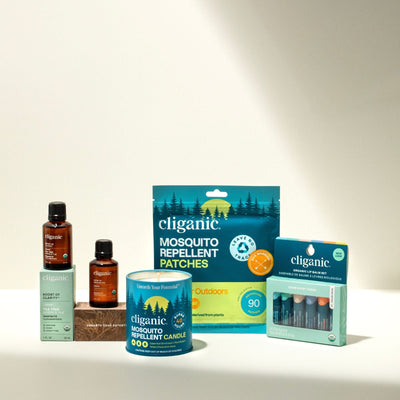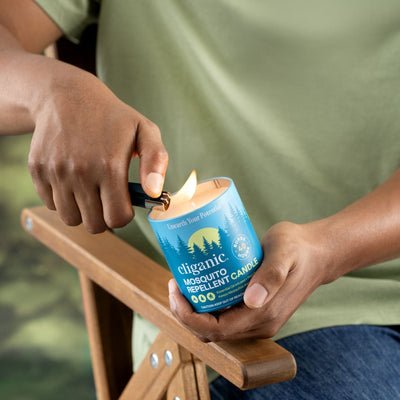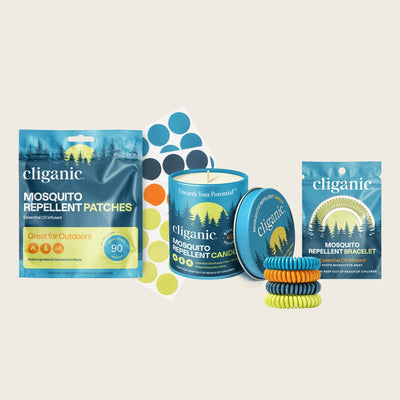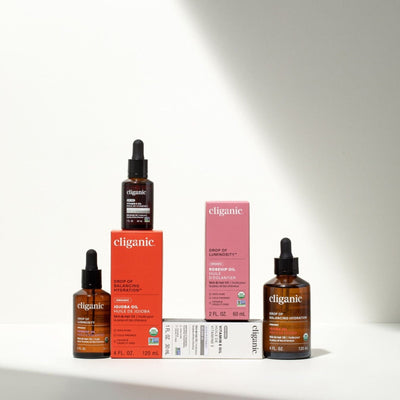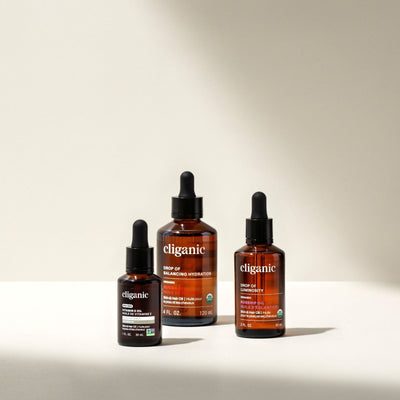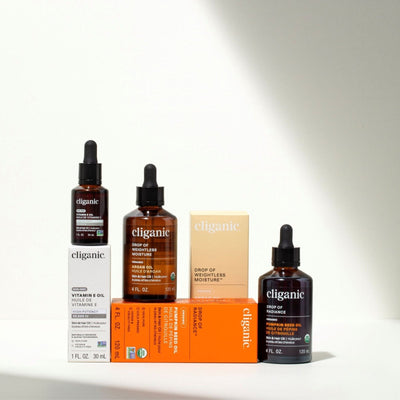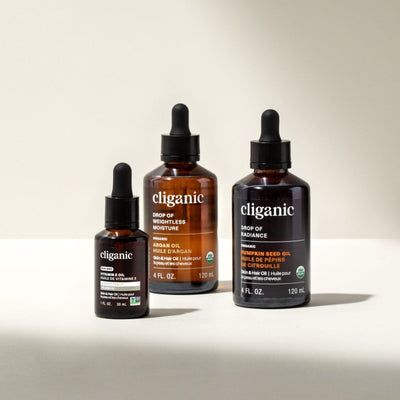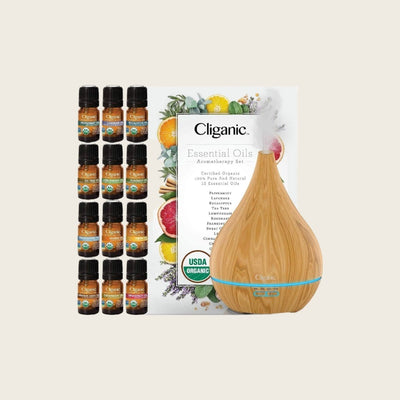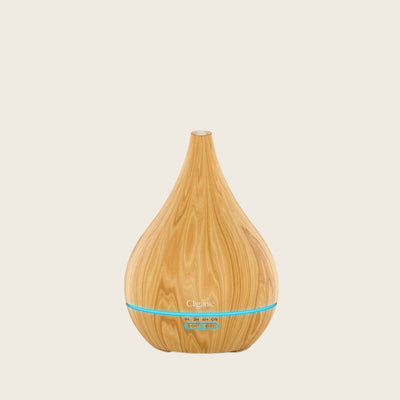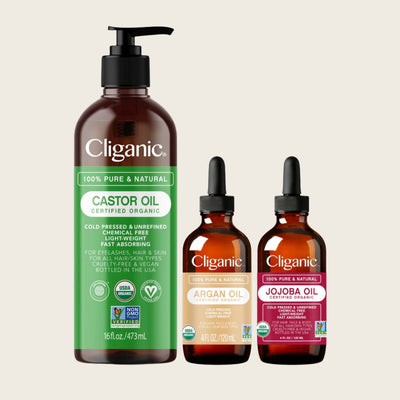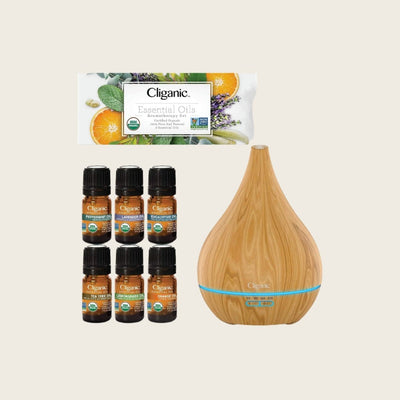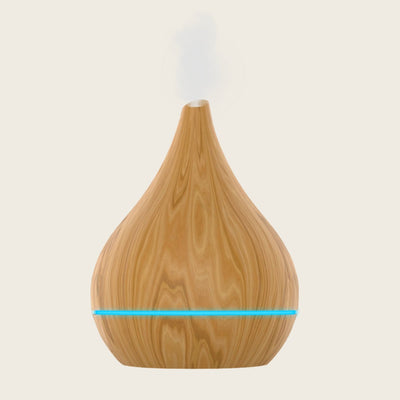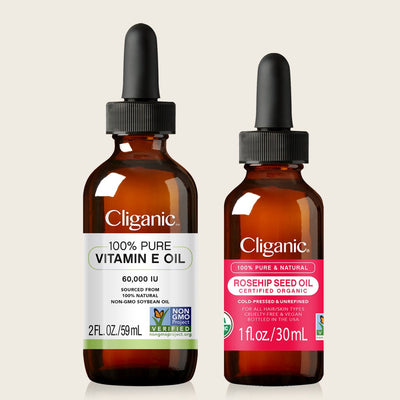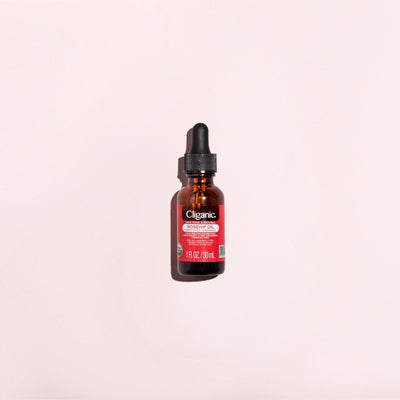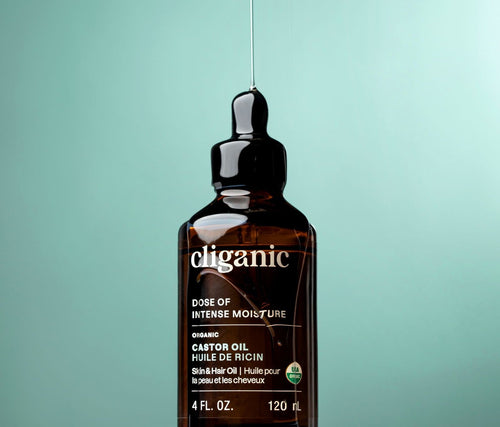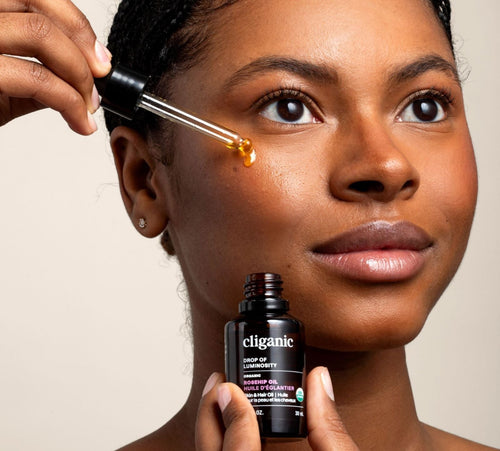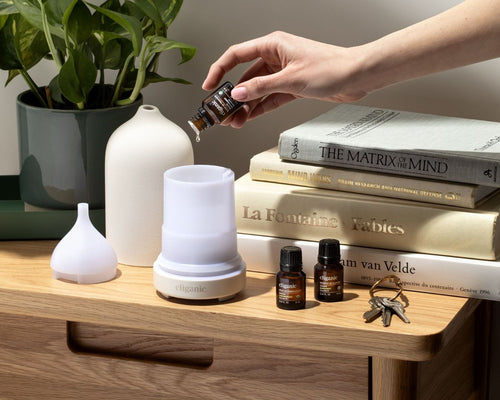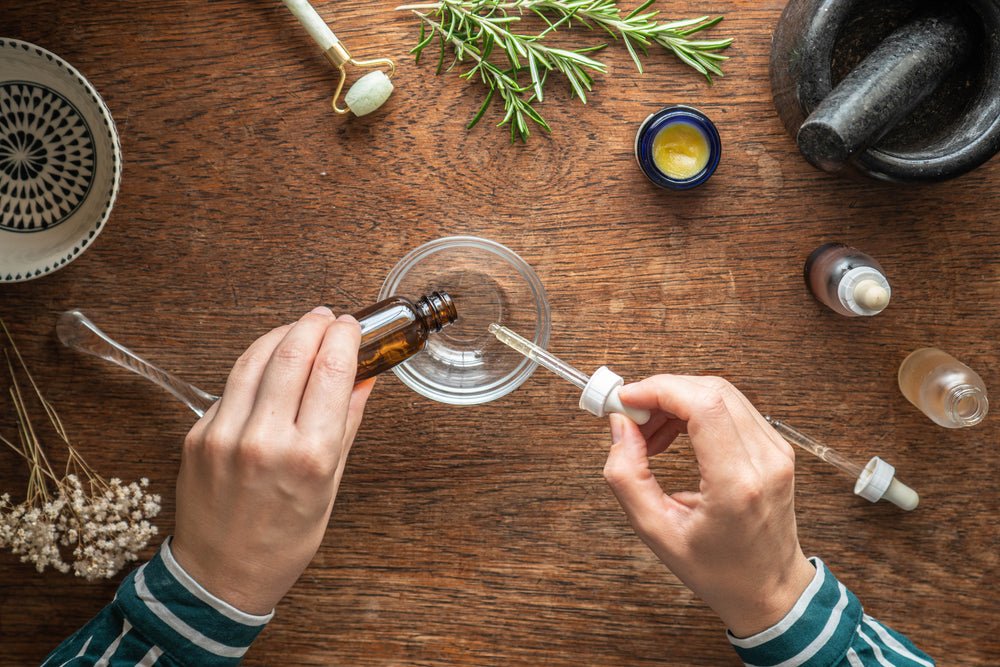
Essential Oil Guide for Beginners
Everyone is talking about essential oils and aromatherapy these days. You can find essential oil uses in social media posts, features in the mainstream media, and dedicated podcast episodes as more and more people are choosing more plant-based remedies to help them manage their stress levels, soothe common aches and pains, improve their sleep and make their skin look healthier.
So what are they? And how do we use them?
Here is our quick Essential Oil Guide to help you better understand what essential oils are and how to use them safely and effectively so you can experience their remarkable aromatherapeutic benefits and live a healthier and more natural lifestyle.
What are Essential Oils?
Essential oils are the liquid aromatic substances that are extracted from the many different parts of aromatic plants, like seeds, roots, flowers, leaves, citrus peels, wood, needles, cones and resin. The different ways in which we use essential oils, like applying them to our skin and also just by smelling them, is called “Aromatherapy.”
Think of the plants you know like peppermint, basil, rose, lavender and rosemary. They are very aromatic right? And in order for us to capture their aroma, and use it to benefit our health and wellbeing, we extract the scent using a process called steam distillation; drawing out the “invisible” aroma and transforming it into a “visible” liquid extract - which is called an essential oil.
These liquid extracts are very concentrated. In fact it can take upward of 100 lbs of plant material to yield just 4 to 8 ounces of essential oil! So this tells us that essential oils are highly concentrated and should be used mindfully.
A pure high quality essential oil is composed of only the unique and special molecules that are produced during the distillation process. Nothing has been added or taken away. Therefore, the resulting essential oil is 100% genuine and authentic.
Why are essential oils called essential oils?
The story of why essential oils are called essential oils has fascinating origins. During the middle ages, Alchemists were endlessly fascinated by the invisible properties of aroma. They believed that scent was connected to identity, soul, spirit – the parts of our human existence that we can’t see or touch. They believed that our sense of smell connected us to the invisible realm, where “essence” and “being” reigned.
In their attempts to extract the scent from aromatic plants, they called the resulting waters and extracts “essences” - Hence, “essential” oil.
But what about the word: “oil” – you might be asking?
Essential Oils don’t dissolve in water. They float above the surface, or sink in droplets - refusing to integrate and mix. This unique physical characteristic categorizes it, chemically, as an “oil.” And the properties of oil and water don’t mix. They separate from each other.
What are essential oils made of?
Essential Oils are composed of naturally occurring chemical compounds, i.e. molecules, that are created and manufactured by the plants themselves to sustain their life.
And it’s these unique chemical compounds that scientists study so that we can understand why and how essential oils work.
For example, why does Lavender make many of us feel sleepy? Well, research has shown that there is a molecule in Lavender essential oil called, Linalool, that has a sedating effect on our nervous system.
How do you use essential oils?
There are basically two main ways to use essential oils so that they can enter our bodies and affect physiological and emotional shifts. One is via inhalation and the other is by applying the oils to our skin.
Inhalation:
When we inhale, two things happen: 1) We bring in needed oxygen, 2) We experience scent. So that means when we are diffusing an essential oil, we are simultaneously breathing it in and smelling it. And that offers us two ways to experience an essential oil’s benefits at the same time.
Applying essential oils to our skin:
Applying essential oils to our skin is another great way to enjoy their benefits. Think about all the different kinds of products we use on our bodies every day: Soaps, cleansers, lotions, creams, exfoliants, gels, oils, salves and balms. Imagine adding a few drops of essential oils to each of the products we use everyday. That would offer us a way to incorporate the benefits of essential oils in the daily practice of our lives with minimal effort.
How does Aromatherapy actually work?
Aromatherapy works by triggering responses in our bodies and our minds at the same time.
For example, when essential oils travel into the body through our skin in a blended lotion, cream, gel, oil or cleanser, a small percentage of its molecules get absorbed, connect to our bloodstream and can have a therapeutic physiological benefit.
Our skin is our largest, most complex and dynamic organ. It connects to our immune system, our endocrine system, circulatory system - and even our endocannabinoid system! So whenever we apply a skincare product that has authentic and genuine essential oils blended into it, we are affecting all those different systems with the therapeutic actions of the essential oils - along with all the different layers of the skin, which can improve our appearance and our overall well being.
At the same time, when we smell the aroma of essential oils, the olfactory nerve cells in our noses trigger signals that get sent instantly to the part of our brain that controls our emotions, memory and all of our unconscious actions.
That’s why a smell can make us feel a certain way, like calmer, more relaxed, happier or refreshed, or even remind us of a particular memory. And what is really amazing, is that the emotional response we have to the aroma has been shown to have a profound impact on the chemicals our brain produces and releases in order to maintain our body’s balance.
Best Ways to use Essential Oils:
Perhaps the most amazing thing about essential oils is that there are so many ways in which to use them.
On the skin:
Everything that touches the skin has an effect not only on the skin itself but potentially on the entire physical body. Applying essential oils to the skin—in a suitable carrier or base—is one of the most dynamic ways to enjoy the incredible benefits they offer. Once on the skin, essential oils may potentially support cellular rejuvenation, relieve itchiness, reduce inflammation and irritation from an insect bite, and much more. Through the power of essential oils and carrier bases, aroma-therapy body care products support, protect, and enhance our skin’s overall health and vibrancy.
We can use them in applications like: Gels, salves, balms, creams, lotions, cleansers, scrubs and toners.
Inhalation:
Diffusing essential oils into the air or inhaling them is a great way to relieve stress and anxiety, support a good night’s rest, increase alertness, improve air quality, and reduce airborne germs. While diffusion of essential oils tends to affect everyone within the environment being diffused, inhalation tends to be a personal interaction with the essential oils.
We can use them in applications like: Diffusing, roll-ons, personal inhalers, aromatic mists, steams.
How to store them?
Storing your essential oils properly is key to making sure they stay potent and smelling good,- Always store them away from direct sunlight and heat.
- Always keep the caps on tight, so air doesn’t seep in.
- Add extra labels to the tops of the essential oil caps, so you don’t mix them up.
- Keep your essential oils in a carry case, or on a shelf for easy access, in a cool, dimly lit area.
What is their shelf life?
In general, all essential oils should stay good for about 18 months to 2 years from the time you first open the bottle. But, keep in mind that essential oils that come from citrus peels usually last only 1 year.
When an essential oil “goes bad” all it means is that oxygen has caused some of the lighter molecules to change, resulting in a change in the aroma. For instance, sweet orange essential oil may smell less sweet after a year or two, or your lavender oil may begin to smell too medicinal.
This natural process of “oxidation” does not make the oil toxic, or dangerous - all it does is make the oil smell different, and if you were to use it on your skin, without a carrier, it's possible it could cause slight itching.
Make sure to always check the batch lot numbers on your bottle, so you can keep track of each oil’s suggested expiration date.
But keep in mind, essential oils are natural substances, and each oil has different molecules that change at different rates. as the oil ages. So the best way to really understand when an oil starts to “go bad” is to practice smelling them, and be able to recognize the change in the aroma.
How to use them Safely:
Using essential oils on our skin is completely safe…but only if you understand the proper way to use them. It’s their rampant misuse that causes problems.
Remember, essential oils are the aromatic components extracted from the different parts of aromatic plants, and their main purpose is to be smelled. That means when we apply them to our skin, we can enjoy their aromatic benefits for a longer period of time, as they linger on our skins’ surface and the aroma slowly dissipates.
But in order to use them on our skin we have to keep a few important things in mind. Because – like with anything, misuse can cause harm. Keep these guidelines in mind when you reach for an essential oil!
Method of Application:
How and where you apply essential oils can determine whether or not the essential oil may potentially cause an adverse reaction. For example, essential oils applied to sensitive areas on the body may be more likely to cause irritation than when applied to less sensitive areas. Also, different routes of administration can cause different reactions; for example, aromatic baths, diffusion, and skincare applications all need to follow different guidelines to reduce the risk of irritation.
Dosage and Dilution:
It’s recommended to always dilute, or blend down, your essential oils into a carrier oil, or an unscented base ingredient, to lessen the essential oil’s potency.
Integrity of Skin:
Make sure to pay attention to the health of the skin before applying any skincare that features essential oils. Avoid open wounds, and overly sensitized and irritated skin.
Age and Health of Individual:
Always take into consideration the age and health of the individual. For example, infants, toddlers, seniors should always be approached gently since their skin is more sensitive and fragile, as should anyone challenged with compromised immunity.
Follow Safety Guidelines:
-
Keep out of reach of children and pets
-
Do not apply before going in the sun or a tanning bed
-
Avoid prolonged exposure
-
Don’t use essential oils you don’t have any experience using.
-
Avoid direct application to the skin
-
Be mindful of allergies
-
Familiarize yourself with the safety concerns of each essential oil you use
-
Be cautious when pregnant or breastfeeding
-
Avoid using near eyes
-
Keep away from flames and open fires
-
If diffusing, makes sure there is ample ventilation
-
Do not use internally


